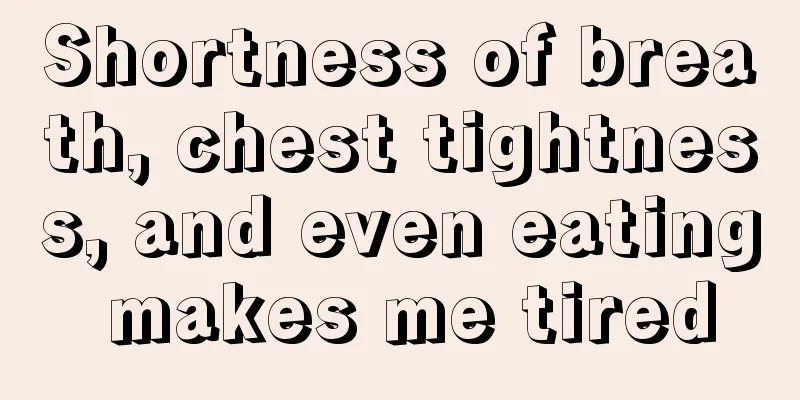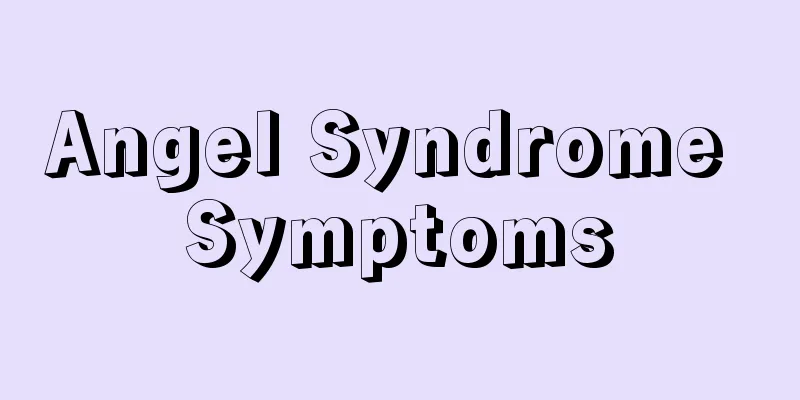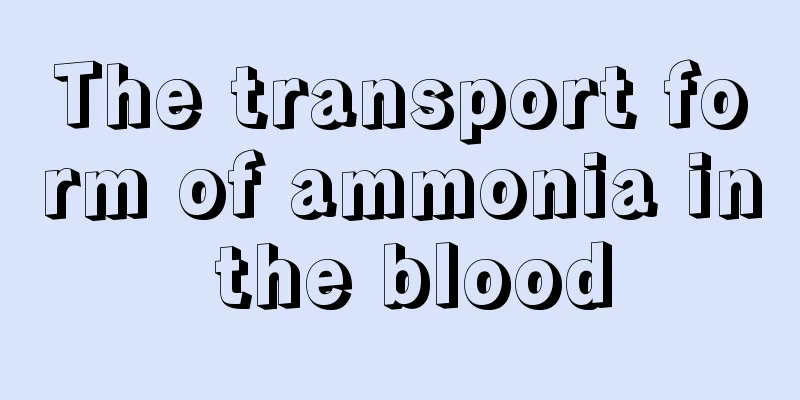Shortness of breath, chest tightness, and even eating makes me tired

|
Shortness of breath, chest tightness, and feeling very tired when eating are quite common in daily life. Shortness of breath and chest tightness are relatively subjective symptoms. Patients often feel difficulty breathing and feel as if there is a stone pressing on their chest. There are many reasons for this shortness of breath and chest tightness, both physiological and disease reasons. If it is serious, you should be alert and go to the hospital for examination in time. Shortness of breath, chest tightness, and fatigue when eating Chest tightness is a subjective feeling of difficulty breathing or not having enough air. Those with mild symptoms will feel nothing serious, but those with severe symptoms will feel uncomfortable, as if a stone is pressing on their chest, and even have difficulty breathing. It may be a functional manifestation of the body's organs, or it may be one of the earliest symptoms of disease in the human body. The causes of chest tightness in people of different ages are different, the treatments are different, and the consequences are also different. Causes of chest tightness and shortness of breath 1. Functional chest tightness (i.e. chest tightness without organic disease): Staying in a room with closed doors and windows and poor air circulation for a long time, or encountering some unpleasant things, or even having quarrels or disputes with others, or being in a climate with low air pressure, often causes feelings of chest tightness and fatigue. After a short rest, opening windows for ventilation or going outside to breathe fresh air, relaxing your mind and regulating your emotions, you will soon return to normal. This type of chest tightness can be said to be functional chest tightness, and there is no need to worry or seek treatment. 2. Pathological chest tightness (i.e. chest tightness caused by organic lesions): Chest tightness can not only be physiological, but can also be caused by diseases in certain organs in the body, i.e. pathological chest tightness. like: Respiratory obstruction: tumors in the trachea and bronchus, tracheal stenosis, and external pressure on the trachea (thyroid enlargement, tumors in the mediastinum); Lung diseases: emphysema, bronchitis, asthma, atelectasis, pulmonary infarction, pneumothorax; Heart disease: some congenital heart diseases, rheumatic heart valve disease, coronary heart disease, heart tumors; Diaphragmatic diseases: diaphragmatic bulging, diaphragmatic paralysis; Pathological chest tightness can occur suddenly or slowly. Most of the sudden occurrences are due to acute traumatic or spontaneous pneumothorax, acute asthma, acute foreign body in the trachea, acute heart attack, acute pulmonary infarction, etc. Chronic chest tightness is a condition in which symptoms gradually worsen as the disease progresses. Chest tightness in children mostly indicates congenital heart disease or mediastinal tumors; chest tightness in young people mostly indicates spontaneous pneumothorax, mediastinal tumors, or rheumatic heart valvular disease; chest tightness in the elderly mostly indicates emphysema, coronary heart disease, etc. |
<<: Chest tightness during nap
>>: Chest tightness and lack of oxygen after getting angry
Recommend
What to do if urine is turbid
Turbid urine is caused by the presence of a lot o...
Dietary treatment for pancreatic cancer
Dietary treatment for pancreatic cancer: 1. Garde...
Early symptoms of inguinal lymphoma
No matter what kind of disease occurs in the huma...
How much does a colorectal cancer test cost?
Cancer, also known as malignant tumor, is scary b...
Acute pericoronitis of wisdom tooth
There are many common problems in life, and when ...
What medicine should I take for allergic cough
Allergic cough is a very common disease. Especial...
Which type of lung cancer does differentially differentiated carcinoma belong to?
Poorly differentiated cancer refers to a specific...
How long can you live with cervical cancer
When women are diagnosed with cervical cancer, th...
Why does lung cancer cause leg pain? Maybe the cancer cells have metastasized
Leg pain after contracting lung cancer is general...
What are the benefits of not breastfeeding for mothers?
Since ancient times, people have been vigorously ...
Good diet can improve immunity in brain cancer patients
Brain cancer patients can improve their immunity ...
Can colorectal cancer be cured by radiotherapy?
Once colorectal cancer is discovered, it must be ...
What causes pain in one breast?
If you have pain on one side of your breast, you ...
What are the benefits of natural glycerin
Girls who love beauty should be familiar with gly...
Who is more susceptible to cervical cancer
The process of cervical cancer is long, and it us...









